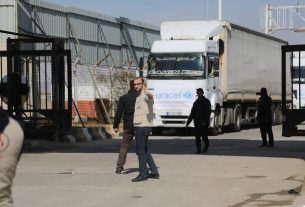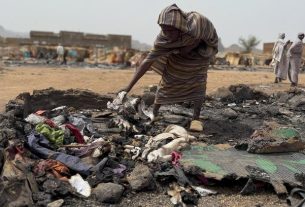As the world steps into a new year, it is essential to reflect on the tragic human cost of the Gaza conflict, specifically the plight of hostages held on both sides. Over the course of the ongoing violence, hundreds of civilians, journalists, and fighters have been taken hostage, sparking global concern. Hostages represent not just a tragic consequence of war but also a glaring issue that must be addressed by international actors urgently. In 2024, efforts for a ceasefire and peace must put the release of hostages at the forefront.
The Human Toll: Hostages on Both Sides
Hostage-taking has become a significant and heartbreaking aspect of the Gaza conflict. On one hand, Hamas, the Palestinian militant group controlling Gaza, has been accused of capturing Israeli civilians and soldiers during incursions. On the other hand, Israel has detained a large number of Palestinian civilians, with some being held without trial or under military orders, exacerbating tensions and deepening the human rights crisis.
According to recent reports, over 100 individuals remain held as hostages on both sides, with the vast majority of them being civilians. In Gaza, militant groups have captured Israeli nationals, including dual citizens, journalists, and workers. These hostages have often been used as leverage for negotiations or as part of larger political strategies.
On the Israeli side, Palestinian prisoners, including civilians, remain incarcerated in Israeli jails, sometimes for years without trial. These prisoners are often linked to past acts of resistance or to broader political movements. Many Palestinian detainees face harsh conditions and indefinite detention, fueling anger and further complicating efforts toward peace.
The Global Call for Action
Human rights organizations have been vocal about the importance of addressing the plight of hostages in Gaza. Both Amnesty International and Human Rights Watch have issued calls for their immediate release, demanding that their rights be respected and protected under international law. They have also urged both sides to engage in dialogue, emphasizing that the taking of hostages is a violation of international humanitarian law.
In response to this crisis, governments and international organizations must unite in their calls for immediate and unconditional release of all hostages. The issue of hostages transcends borders, affecting not only the individuals involved but also the broader efforts toward peace and ceasefire. Addressing this problem could set the stage for a more comprehensive peace agreement.
Why Hostage Release Should Be a Top Priority
The hostage situation in Gaza is not just about negotiating the return of individuals; it also impacts broader humanitarian and political outcomes. First and foremost, addressing the release of hostages would alleviate the immense suffering of families and communities on both sides of the conflict. Many of these hostages are innocent bystanders who find themselves trapped in the crossfire of a brutal and prolonged war. Their suffering is a tragedy that should motivate both global actors and local leaders to seek a resolution.
Furthermore, prioritizing the release of hostages can serve as a critical stepping stone in achieving a ceasefire. Without addressing the human cost of hostage-taking, any peace agreement will lack legitimacy and fail to address the true needs of those affected. A humanitarian initiative focused on the release of these individuals can provide the momentum needed for lasting peace.
The Role of International Bodies
International bodies such as the United Nations and the International Committee of the Red Cross (ICRC) have consistently called for humanitarian access to prisoners, as well as for the protection and proper treatment of hostages. The ICRC has been involved in facilitating prisoner exchanges in the past, though many challenges remain. In its capacity, the UN also works to mediate and advocate for ceasefires and negotiations to resolve the hostage crisis.
However, these efforts require the support of both Israeli and Palestinian authorities. The role of neutral mediators has never been more important, as they ensure that the negotiations are conducted in good faith and that all human rights violations are addressed comprehensively.
Current Data and Statistics on Hostage Situations
Recent data indicates that over 100 hostages are currently being held in Gaza and Israel. In Gaza, approximately 50 Israeli hostages, including soldiers, civilians, and foreigners, remain under captivity. In contrast, Israel holds over 60 Palestinian detainees under various circumstances, including those accused of political offenses or military actions. This imbalance illustrates the scope of the crisis on both sides, where innocent civilians bear the brunt of this tragic situation.
Conclusion: A Path Toward Peace Through Hostage Release
As 2024 unfolds, the international community must turn its focus toward addressing the grave issue of hostages in Gaza. While discussions of ceasefire and peace agreements are critical, the immediate release of hostages should be seen as a priority. Both sides must take steps to ensure that all individuals—regardless of their nationality, background, or political affiliation—are released unconditionally.
The voices of global organizations and human rights advocates are united in this call for justice. The plight of the hostages in Gaza is not just a political issue; it is a human rights issue that demands immediate attention and action from all involved parties. A lasting peace will only be possible when the human cost of the conflict is acknowledged and the suffering of innocent individuals is alleviated. The time to act is now.
Key Figures:
- Over 100 hostages remain held on both sides of the Gaza conflict.
- 50 Israeli hostages in Gaza, including civilians and soldiers.
- 60 Palestinian detainees held in Israel under various conditions.



